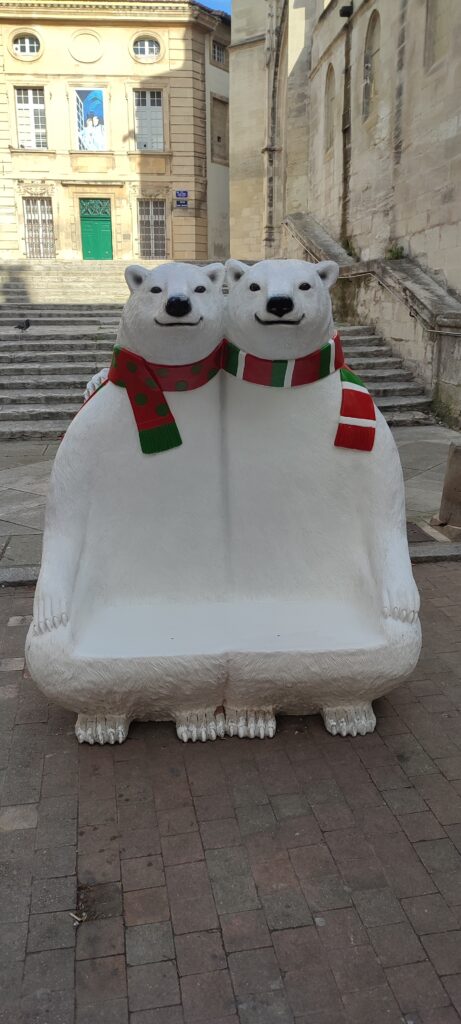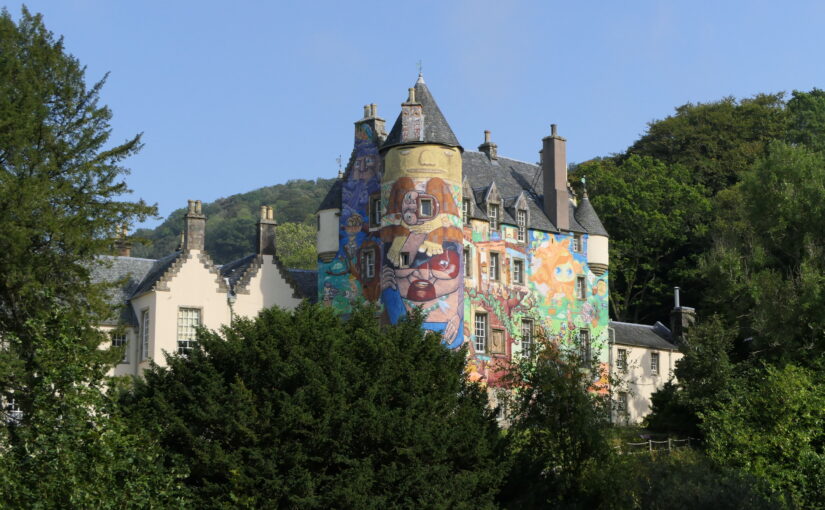It’s three years, well to about the nearest month, since I put a post up here: Being an artisan researcher. It does feel timely to review that, but for me it is increasingly about holding a sense of hope and of any personal sense I can do anything of value in a world that seems increasingly disgusting and makes me despair of our species and our societies.
Thats a brutally grim start though it captures my struggles with despair that have become more challenging these last three years.
Let’s hold onto humour when we can. That recognition of my identity three years ago has an echo of this:
MONSIEUR JOURDAIN: Oh, really? So when I say: Nicole bring me my slippers and fetch my nightcap,” is that prose?
PHILOSOPHY MASTER: Most clearly.
MONSIEUR JOURDAIN: Well, what do you know about that! These forty years now I’ve been speaking in prose without knowing it!
—Molière, The Bourgeois Gentleman, 1670 courtesy of thehumanist.com here.
[I confess I was about to misattribute that to Mrs. Malaprop but had a qualm and checked. Hooray for humour, humourists and caring about attribution!]
So for forty years I think I was writing prose, research prose, mostly not very good prose as far as literary style goes. I also realise I was becoming an artisan[al] researcher and for years I didn’t realise it. I was amused, when I got the correct quote there, to discover that it was a philosophy master who reassured M. Jourdain of his sophistication. It was a great colleague in my brief time in Roehampton University, Edith Steffen who became a kindly philosophy teacher to me. She enabled me to overcome my fears of the words “philosophy” and “epistemology” and that helped me reflect about what kind of researcher I thought I was. She must have started me on that track about ten years ago now (wow, that has flown, or perhaps, wow, I’m a slow learner … but thanks Edith!)
So three years on from my belated epiphany, where I am with this identity? Well, I am no longer at Roehampton who seemed pretty happy to let my honorary chair there slip away last year! However, I’m still very happily holding the same honour in UDLA: the Universidad de Las Américas, Quito, Ecuador and very grateful to them. I am grateful for their support, which underwrites the CORE web site and I am grateful for the freedom they allow me, and above for the very productive and creative collaborations with Professor Clara Paz there and with a number of her colleagues, students and ex-students.

So I am artisanal but still connected into an institution though, perhaps tellingly, an institution where I can’t even speak the language beyond ordering a coffee. At the same time, I continue to live half the year in France where my language skills are better but never going to rival my English.

Do those geographical locations link with being “artisanal”? I think they do as there’s something about that perhaps trendy word “liminality”: I seem to locate myself on or across edges, boundaries and this goes for research/academic organisations, at least UK ones, and for research/academic cultures too.
In fact, my “location” in UDLA is only on the internet now, via Emeetings and many Emails as my determination now to “stay on the ground” to reduce my horrible lifetime carbon footprint means I made my last, of two, physical visit there last year. Sad not to go again to such a wonderful country and people but again this is part of my own moral stance I guess.
This positioning myself on edges, across some boundaries helps me another dear moral principle for me: that I make my own decisions and choices, own them and try to explain them but don’t, if I think it’s wrong, just do what I am told to do or what other people are doing.
World politics seem to me to have worsened horribly in the last three years and I see independence of thinking being brutally attacked in the USA, but clearly for the world, by the new president and his minions. As with so many dictators, aspiring, petty or terrifyingly powerful, president Trump argues that he is defending “freedom”. I think that touches my and my chosen position.
I grew up, from as early as I could really understand it, to be apalled by human history of dictatorships and the things done under them, particularly the history of Nazism and other fascisms in WW-II and I know this is one thing that has driven me to my liminality and my artisanal position: I am desperate not to be told how to research, what to do, what to produce as I see that desperation, that determination, as how I escape being just another person who would have put people on trains to the concentration camps or lived alongside the camps.
I don’t think that “desperate” is too strong a word there, feeling pushed to do things I believe are wrong elicits a near physical nausea. I also fear my own certainties turning me into a bully though I am not as desperate about that as I am about being reduced to a cog, a subroutine in some global program.
When it comes to encouraging others to listen to how I see things I am pretty mistrustful of slipping over into telling people how to think unless it’s within a “this is why” thread. That’s not desperate, it doesn’t make me nauseous, but over the last ten years it has made me increasingly uncomfortable teach within institutions that seem to me to lost real wishes to encourage learning, so I’ve largely stopped doing talks.
But I see my idea of, my seeking of, independence as totally different from the way that Trump, Musk, Trust, Badenoch and other libertarians speak of freedom, independence, liberty. For me this is about the reality that my mind, for all I protect its independence, is only a mind with meaning if it’s a mind in connectedness.
I couldn’t think without language that I was given by my parents, teachers and so many others. I couldn’t write code without other languages: without the people who created the computer languages I have used. I wouldn’t have a clue about statistics had I not had a brilliant maths teacher at “tech. college” when I was 17/18 (sadly I’m almost as bad at maths and programming as I am at human languages); she gave me a platform that meant I could then learn statistics. And I’ve learned that from so many others who have developed, taught me that. I think I’ve had at most five formal lessons in statistics over my life so that learning has been almost entirely through their textbooks, papers stats package support in manuals, books and now generally in the stats packages themselves.
In summary, I only think in interconnectedness, interconnectedness that goes back for millenia historically and living interconnectedness through my life so far of working with others. A few years ago now with Edith, currently particularly with Clara, but, with such good fortune, with many others.
I try to repay a bit of the debt I have for all of that glorious input by production: that’s what we researchers are supposed to do: to produce research output. however, increasingly I try to make sure that my own product is freely available. Eat your hearts out Elon, Donald and your sad friends with your protection of “freedom”: I will think, continue to learn and be taught about gender, about sexuality, about culture, inequity and all the things you are suppressing. I will be lucky enough to have those real freedoms of interdependence as much as I like. I think in the years I have left, no matter how much damage you do, I will be lucky enough to hold onto that freedom.
I will continue to produce papers in peer-reviewed journals though I am increasingly wary of the way that most of these journals are owned by a small number of academic publishing companies whose commitment to the creation of creative webs of work seems blatantly secondary to their commitment to turning a profit for owners and shareholders.
Luckily again for me, my artisanal products are things that just need me to maintain (quite a complicated) couple of internet servers (many thanks Mythic Beasts for your commitment to open source software, human relatedness and reliability). As an artisan who believes that real research is about creating networks of shared thinking and information, not about counts of papers published in the best journals I try to expand these artisanal products.
- A glossary of terms used in therapy research. This started as, and still is, a glossary covering many terms in the OMbook but now contains many terms not in the book.
- My Rblog: this is a mix of illustrations of how I do some things in R, a few non-R geeky things but also a lot of expanded exploration of terms and issues that couldn’t be summarised in glossary entry.
- A collection of interactive online applications written using shiny.psyctc.org. So far they are all ones I wrote but that may change.
- A package of R functions: CECPfuns designed to be as easy for non-R, non-geeks to use and aimed at therapy practitioners crunching their own data (rare I would guess), people crunching data for services and researchers.
Where will I be in three years’ time? Who knows, watch this erratic blog to find out!!

Text and images all mine (header image is from Kelburn, see Ieuan’s first public sculpture). As ever, all released under the Attribution 4.0 International (CC BY 4.0) licence.
